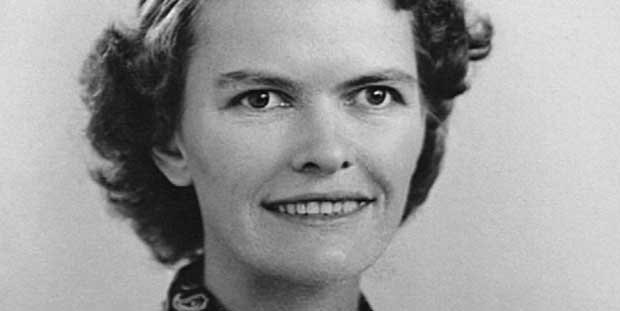This article was originally published in the Dec 2020/Jan 2021 edition of the MAA Focus, which you can find here.
The Julia Robinson Mathematics Festival (JRMF) is known for in-person, collaborative celebrations of mathematics. Where else could you find so many kids and adults working together to solve puzzles and problems outside of the classroom? Since its first festival at Google in 2007, JRMF has hosted close to 500 events with participants in 26 states, the District of Columbia, Puerto Rico, and 16 foreign countries.
“We try to promote great ideas and intriguing problems that nurture students’ interest in math. We always encourage each attendee to find something engaging and rewarding,” said JRMF founder, Nancy Blachman.
When the COVID-19 pandemic hit in March 2020, JRMF wanted to find a way to provide the same discovery-based, collaborative mathematical environment to students online. By the end of the first month of lockdown, JRMF launched a weekly webinar series featuring a new activity from the JRMF archive. To further enhance the experience, JRMF developed digital apps to accompany each of the activities. These interactive games, problems and puzzles allow students to engage in the manipulative-based approach of the in-person festivals.
The online events start with a facilitator who presents one of the JRMF custom-designed activities. Following the introduction, attendees are divided into breakout rooms by age, grade and/or experience. There are 10–15 participants in a breakout room and at least one facilitator who guides and monitors the session. Most facilitators are volunteer lovers of mathematics from different disciplines, including mathematicians, teachers, engineers, programmers, older students, and other members of the mathematical community. Each week, facilitators attend a one-hour training at which time the activity is reviewed and different avenues of problem solving are explored.
“Training our facilitators in the JRMF way is crucial to our success,” said Hector Rosario, JRMF Director of Outreach and Festivals. “ We want participants to play with the problems and puzzles. We encourage students to take risks and allow them to make mistakes. The role of the facilitator is that of a guide who nurtures this way of learning .”
In the first months of the pandemic, the audience was 30-50% female, 60% K-12 students, and 40% teachers, parents, and other adults who enjoy mathematics. When school started in the fall, students were replaced by more teachers looking for engaging materials for their online classrooms. JRMF now hosts two weekly webinars in English and Spanish and the growth of these events has been phenomenal. The Spanish webinars on Saturday mornings have doubled in size since the fall and now JRMF is training an average of 130 teachers a week. Since the spring, hundreds of teachers, students and math lovers have participated in the weekly English webinar.
“It’s an exciting time for JRMF,” Dr. Rosario continued. “Our materials are well-designed and easy to use, and our webinars allow the educators to play, giving them a deeper understanding of the material, which they can then pass on to their students.”
Worldwide Growth:
During the last week of October, JRMF moderated a webinar for over 50 teachers from Argentina. In November, they helped a group of high school students from India run a virtual festival for younger students. The second JRMF in-person festival in Ghana is currently in the early planning stages.
Also in November, JRMF launched Webinars on Request . Potential hosts, be they teachers, parents, or other math enthusiasts from around the world, can request a webinar for their students from JRMF’s extensive catalog, to which new activities are frequently added. Most hosts can be trained to run the activities independently after a few sessions. This service is offered free of charge in English and Spanish.
As part of Webinars on Request, JRMF is moderating a “Sister Schools” program where groups of students from two schools meet synchronously to explore an activity. The objective is to foster written and verbal communication between students around mathematics, akin to pen pal programs, sports leagues, and other interscholastic activities.
Executive Director Daniel Kline leads the development of the new online activities and apps.
“JRMF strives to create activities that are both welcoming to new problem solvers and challenging to veteran math enthusiasts. We want to provide all people with the opportunity to think deeply, to want to think deeply, and to enjoy thinking deeply. At JRMF, every person is a welcomed part of the mathematics celebration.”
For much more information, to sign up to host a festival, to attend a festival, or to participate in one of the online events, please visit jrmf.org.
ABOUT THE JRMF
The Julia Robinson Mathematics Festival (JRMF) operates as a non-profit foundation under the fiscal sponsorship of Social and Environmental Entrepreneurs (SEE). JRMF offers students and educators advanced and thought-provoking mathematics in a social and cooperative atmosphere. JRMF believes that motivation comes from social interaction and internal drive, rather than from any prize, grade, medal, or ranking. All activities are available at no cost online through the jrmf.org website. JRMF’s mission is to inspire joy in mathematics through exploration and collaboration.
Who was Julia Robinson?
Julia Robinson (1919–1985) was the first woman to be elected to the mathematics section of the National Academy of Sciences, the first woman to serve as president of the American Mathematical Society, and a recipient of a MacArthur Fellowship.
Her work on Hilbert’s 10th problem played a crucial role in its ultimate resolution.



